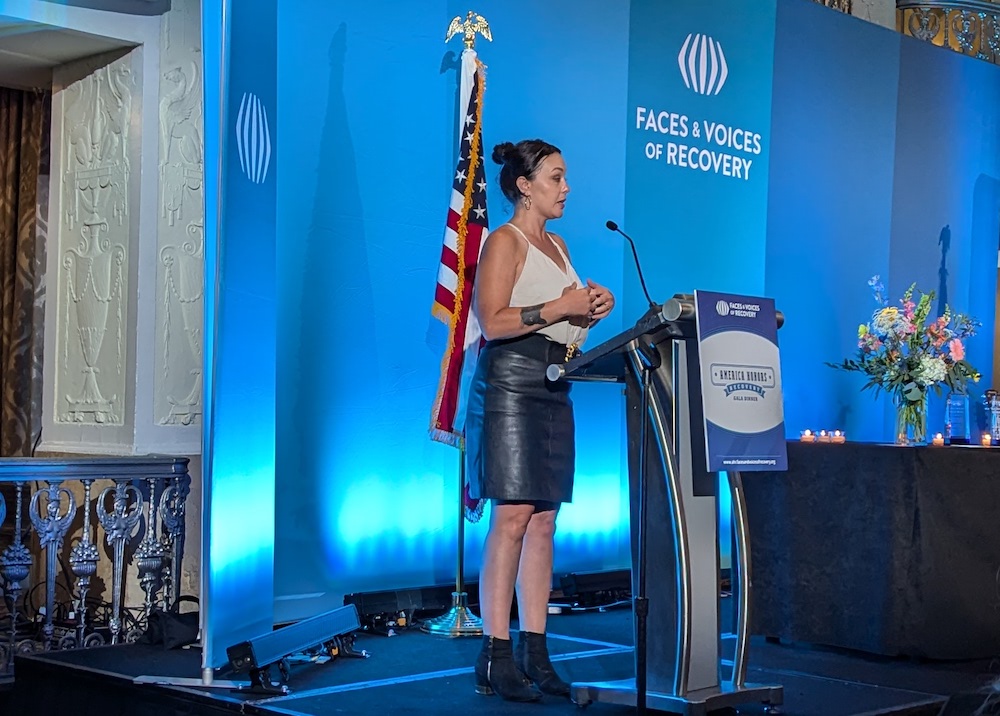
- Details
- By Native News Online Staff
Native News Online Senior Editor Elyse Wild was honored this week at the America Honors Recovery Gala Dinner in Washington, D.C., for her reporting on the overdose crisis in Indian Country.
Hosted by Faces & Voices of Recovery, the event brought together more than 200 advocates, recovery professionals, policymakers, and supporters to recognize those working to remove barriers for communities affected by addiction. Wild received the first-ever Excellence in Recovery Journalism Award, presented by Faces & Voices of Recovery in partnership with Reporting on Addiction, a collaboration of addiction science experts, professional journalists, and journalism educators working to improve the way the media portrays addiction.
The award honors journalists who courageously illuminate stories of addiction and recovery with a dedication to investigative journalism and compassionate, fact-based storytelling that inspires empathy, challenges stigmas, and catalyzes positive change, according to a statement.
As senior editor for Native News Online, Wild covers healthy equity in Indian County through a solutions-focused lens, with an emphasis on the overdose epidemic and Missing and Murdered Indigenous People. Her work for Native News Online has been co-published in The Guardian, Tribal Business News, McClatchy newspapers, and NPR's Washington State affiliate station. She is currently working on a Pulitzer Center for Journalism-funded series examining how culture affects addiction treatment in Native communities.
According to data compiled by the CDC, the Indian Health Service, the National Institute on Drug Abuse and various state health departments, Native Americans are 2.6 times more likely to die of an overdose than white Americans.
In her acceptance speech, Wild highlighted the innovative and culturally centered work that federally recognized tribes are doing to advance substance use prevention, harm reduction, and recovery amid the proliferation of fentanyl and other addictive substances.
"Please, please, do not forget about Native communities as you work to make recovery available for everyone," she told the audience.
More Stories Like This
This National Cancer Prevention Month, Reduce Your RiskNew Mexico Will Investigate Forced Sterilization of Native American Women
USDA Expands Aid for Lost Farming Revenue Due to 2025 Policies
Two Feathers Native American Family Services Wins 2026 Irvine Leadership Award
Bill Would Give Federal Marshals Authority to Help Tribes Find Missing Children

